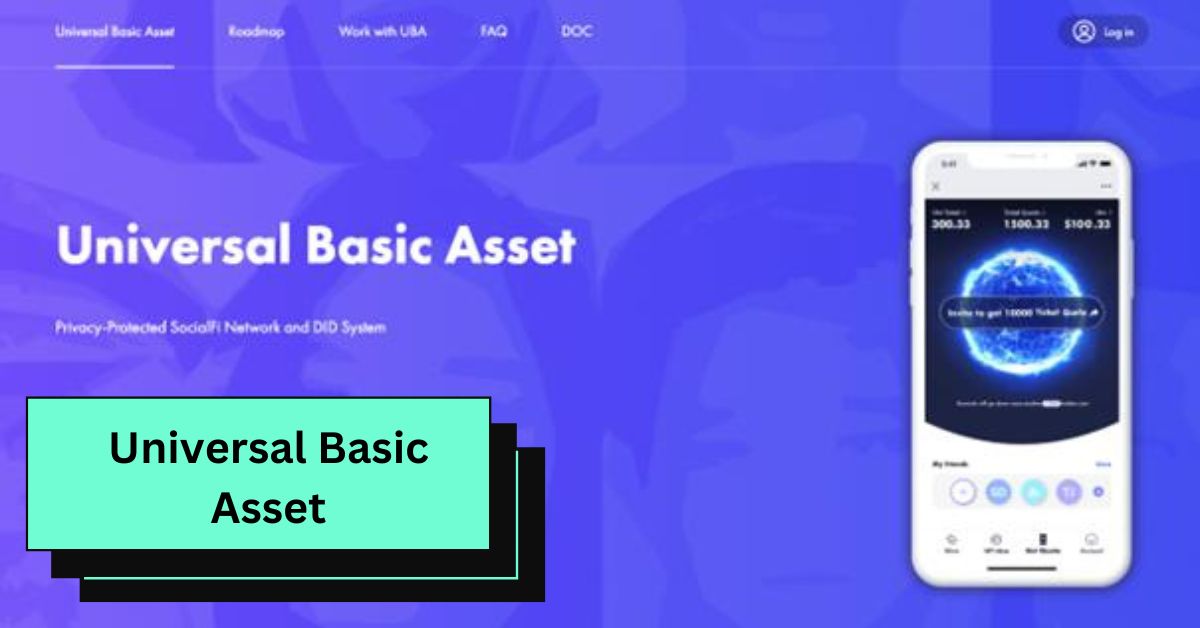In the ongoing quest for socioeconomic equity and resilience, the concept of Universal Basic Asset (UBA) has emerged as a radical yet compelling alternative to traditional welfare models.
Unlike conventional approaches that focus primarily on income redistribution, UBA aims to provide every individual with a tangible stake in the economy by granting them ownership of essential assets.
This article explores the rationale behind UBA, its potential advantages, challenges in implementation, and the implications for reshaping welfare systems in the 21st century.
Understanding Universal Basic Asset:
At its core, Universal Basic Asset represents a shift in the paradigm of welfare provision. Rather than merely offering financial assistance to those in need, UBA seeks to democratize access to wealth and resources by ensuring that every member of society possesses a share of common assets.

These assets may encompass a wide range of tangible properties, including land, housing, stocks, bonds, intellectual property rights, or even digital currencies like cryptocurrency.
By distributing assets universally, UBA aims to address the root causes of poverty and inequality while fostering economic inclusion and empowerment.
Potential Benefits of Universal Basic Asset

- Wealth Redistribution: One of the primary objectives of UBA is to mitigate wealth inequality by equitably distributing assets among all citizens. By providing individuals with ownership rights, UBA endeavors to democratize wealth and ensure that everyone has a stake in the prosperity of society.
- Financial Security: Asset ownership offers a more stable and resilient form of financial security compared to traditional income-based welfare programs. With access to tangible assets, individuals have a buffer against economic shocks, job loss, or other unforeseen emergencies, thereby reducing their reliance on government assistance.
- Empowerment and Autonomy: UBAs empower individuals by giving them greater control over their economic destinies. By owning assets, people gain autonomy to make decisions that align with their long-term goals and aspirations, whether it’s starting a business, pursuing education, or investing in their communities.
- Long-term Wealth Creation: Unlike traditional welfare payments that provide temporary relief, UBAs have the potential to generate long-term wealth accumulation. By allowing individuals to accumulate assets over time, UBA promotes intergenerational wealth transfer and enables families to build a foundation for future prosperity.
- Incentivizing Investment in Human Capital: By providing individuals with assets, UBAs incentivize investments in human capital development. Knowing they have a safety net, people may be more willing to pursue education, acquire new skills, or take entrepreneurial risks, thereby contributing to economic growth and innovation.
Read Also: moviesjoy plus
Challenges and Considerations:

While the concept of Universal Basic Asset holds promise, its implementation is not without challenges:
- Cost and Funding: Distributing assets on a universal scale entails significant financial costs and logistical challenges. Financing UBAs may require substantial public investments, tax reforms, or exploration of alternative funding mechanisms to ensure sustainability and affordability.
- Administrative Complexity: Managing and administering UBAs involve intricate logistical and administrative tasks, including asset distribution, valuation, maintenance, and oversight. Establishing transparent and accountable governance structures is essential to prevent fraud, abuse, or mismanagement of assets.
- Impact on Labor Market Dynamics: Critics argue that UBAs may undermine incentives for workforce participation and productivity if individuals rely solely on asset ownership for financial security. Balancing the provision of assets with incentives for labor market engagement remains a critical consideration.
- Asset Valuation and Distribution: Determining the types and quantities of assets to distribute, as well as the criteria for eligibility, presents challenges in asset valuation and allocation. Ensuring fairness, equity, and diversity in asset distribution is crucial to avoid exacerbating existing inequalities.
- Social and Cultural Factors: The success of UBAs depends on broader societal acceptance and cultural norms regarding ownership, wealth, and redistribution. Public education, awareness campaigns, and community engagement are essential to garner support and foster social cohesion around UBA initiatives.
Read Also: bato manga
FAQ’s
1. What is Universal Basic Asset (UBA)?
UBA is a welfare concept aiming to provide every individual with ownership of essential assets, such as land, housing, or stocks, to address poverty and inequality.
2. How does UBA differ from traditional welfare models?
Unlike traditional models focused on income redistribution, UBA grants tangible assets to individuals, fostering economic inclusion and empowerment.
3. What are the potential benefits of UBA?
UBA aims to redistribute wealth, provide financial security, empower individuals, promote long-term wealth creation, and incentivize investment in human capital.
4. What challenges does UBA face in implementation?
Challenges include financing, administrative complexity, potential impacts on labor market dynamics, asset valuation, distribution fairness, and societal acceptance.
5. How can UBA be funded?
Financing UBAs may require substantial public investments, tax reforms, or exploration of alternative funding mechanisms to ensure sustainability and affordability.
6. What administrative tasks are involved in UBA implementation?
Administrative tasks include asset distribution, valuation, maintenance, oversight, and establishing transparent governance structures to prevent misuse.
7. Could UBA affect workforce participation?
Critics argue that UBA may undermine workforce incentives if individuals rely solely on asset ownership for financial security, requiring a balance between asset provision and labor engagement incentives.
8. How do social and cultural factors influence UBA success?
Societal acceptance and cultural norms regarding ownership, wealth, and redistribution play a crucial role. Public education, awareness campaigns, and community engagement are essential for UBA support.
9. What is the potential impact of UBA on wealth inequality?
UBA aims to mitigate wealth inequality by democratizing access to assets and ensuring that everyone has a stake in society’s prosperity.
10. What is the significance of UBA in reshaping welfare systems?
UBA offers a bold and innovative approach to addressing systemic inequities and promoting economic justice, redefining the social contract and building inclusive and resilient societies for future generations.
Conclusion
Universal Basic Asset represents a bold and innovative approach to addressing systemic inequities and promoting economic justice in contemporary societies. By democratizing access to assets, UBA offers a pathway to greater equality, financial security, and empowerment for all citizens. However, the successful implementation of UBAs requires careful consideration of funding mechanisms, administrative frameworks, and their broader socioeconomic implications. As policymakers, economists, and advocates continue to explore alternative welfare models, the concept of Universal Basic Asset holds immense potential to redefine the social contract and build more inclusive and resilient societies for future generations.
Read Also:
jetnet login
Geddy Lee Net Worth – Let’s Explore!

